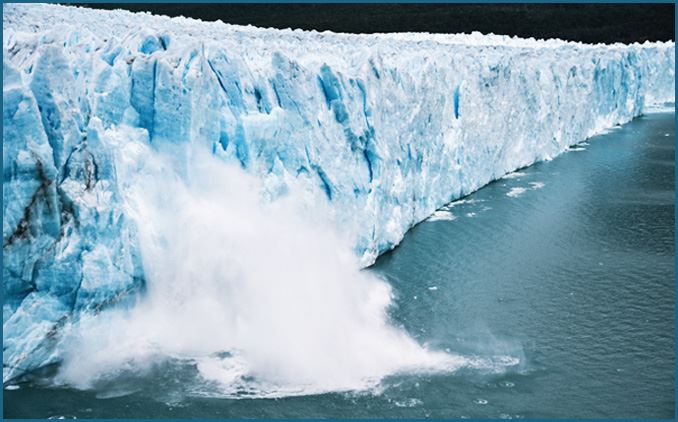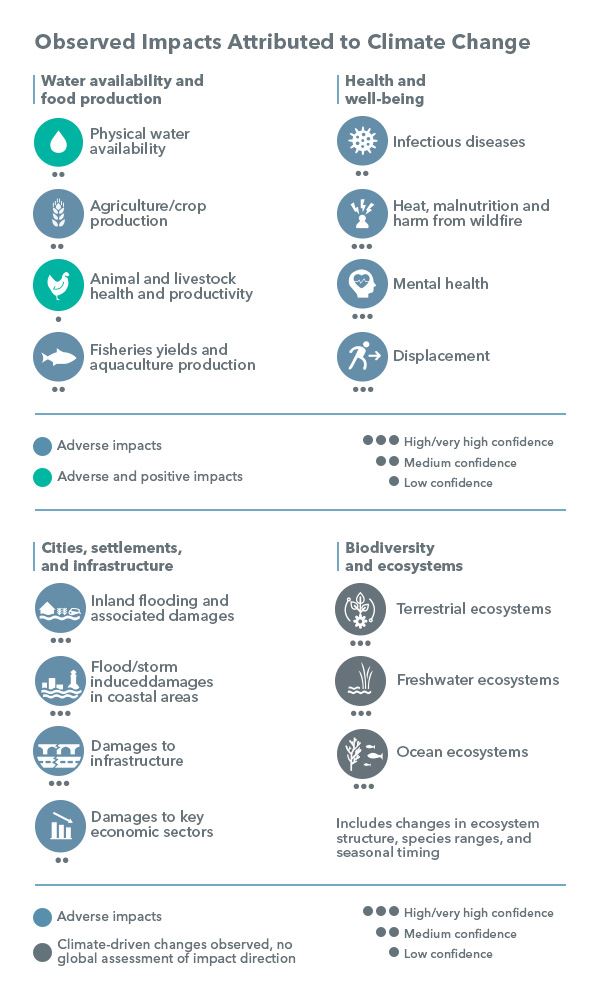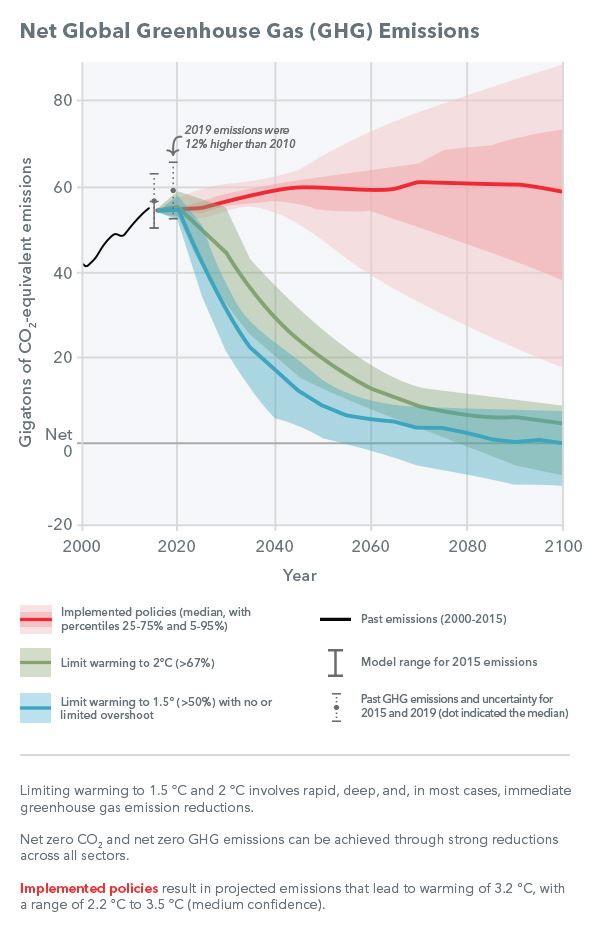7 Things to Know About The United Nations Climate Report
The Intergovernmental Panel on Climate Change (IPCC)—a scientific body of the United Nations—stands as a beacon in the global effort to understand and combat climate change. Established in 1988, the IPCC does not conduct original research but instead synthesizes and summarizes available data into comprehensive Assessment Reports (ARs) that provide policymakers around the world with an up-to-date climate change assessment.
Finalized in March 2023, the Sixth Assessment Report (AR6) delves into the most pressing issues surrounding our changing climate. In this article, we provide 7 takeaways from AR6, encapsulating the essence of the report and highlighting the urgent calls to action.

A large chunk of ice breaks free from a glacier in southern Argentina through a process known as “ice calving.”
Current Status and Trends
1) The Unmistakable Impact of Humans
Human activities—primarily through greenhouse gas emissions—have increased global surface temperatures by 1.1 oC (2 oF) since the second half of the 19th century.
This warming has surged most rapidly since 1970, outpacing any other 50-year period in the last 2000 years. Alarmingly, 2019’s atmospheric CO2 concentrations (410 ppm) were higher than at any point in at least 2 million years.
2) A World of Extremes
Human-caused climate change has led to a global sea level rise of 20 cm (7.9 inches) since 1901, with an accelerated average rate of increase of 3.7 mm (0.15 inches) per year since 2006.
Weather events such as floods, droughts, and storms have intensified. Mortality rates for highly vulnerable regions were 15 times higher between 2010 and 2020 compared to low-vulnerability areas.

Future Climate Change, Risks, and Long-Term Responses
3) Warning’s Future Forecast
Global warming is on track to exceed 1.5 °C (2.7 oF) over the next 20 years, intensifying environmental hazards. By the end of the 21st century, estimates project warming up to 4.4 °C (7.9 oF) based on current emission scenarios.
With every incremental increase in warning, risks to humans and the environment escalate—this includes species loss, heat-induced mortality, and food production impact.
4) The Rising Tide: Impacts of Inaction vs. Benefits of Mitigation
Certain climate change impacts are now inescapable, but aggressive greenhouse gas reductions can limit their severity.
With increased global warming, we risk irreversible damages like a sea level rise of up to 1.01 m (3.31 feet) by 2100 and the potential loss of entire ecosystems, including coral reefs. Yet, by curbing emissions to net zero by 2050, we can restrict sea level rise to around 0.55 m (1.8 feet) by 2100.
5) Immediate Action, Lasting Impact
Immediate and profound greenhouse gas emissions reductions must occur this decade.
Limiting warming to 1.5°C requires net zero CO2 emissions by the 2050s, followed by net negative CO2 emissions. Implementing mitigation strategies such as transitioning to zero-carbon energy sources and carbon dioxide removal (CDR) methods—such as reforestation—is paramount.


Responses in the Near-Term
6) Ecosystem Conservation in a Warming World
Effective conservation of 30% to 50% of Earth’s land, freshwater, and ocean areas is crucial. These ecosystems help combat the impacts of climate change, reducing vulnerabilities like coastal erosion and flooding.
Moreover, reviving overexploited fisheries combats climate-related challenges while bolstering food security and biodiversity.
7) The Long-Term Rewards of Prompt Climate Measures
Rapid and sustained climate mitigation and accelerated adaptation efforts within this decade promise significant reductions in losses for both human societies and ecosystems.
Delaying these measures would escalate costs, especially impacting vulnerable regions. Immediate actions, while demanding initial investments, yield long-term positive impacts.

SOURCES
IPCC, Climate Change 2023 Synthesis Report